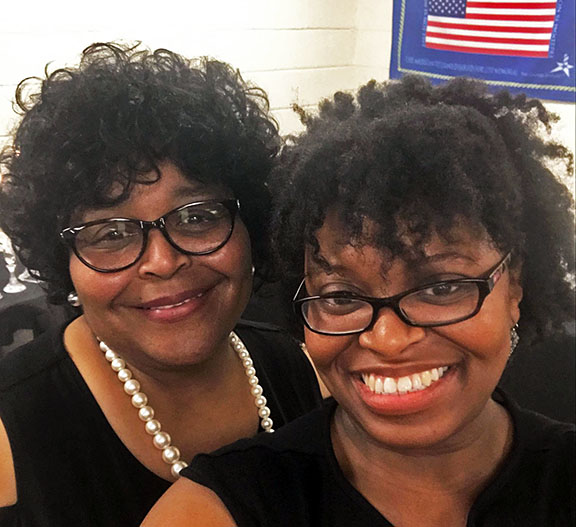
As a black woman who was raised by a Tennessee teacher, I have always felt very passionate about the educational journey of students who look like me. Receiving academic support from black teachers, including my mother, made me feel empowered, proud, and inspired to always demonstrate excellence. Having my own examples of black educators as a K-12 student helped me see my future self in a science profession — a field not known for having high black and brown representation. Ultimately, they inspired me to be a teacher.
I was fortunate for this exposure to teachers who look like me; however, many students of color do not have this experience. Educators of color only make up 13 percent of Tennessee’s educator workforce, but we serve a student population that is 37 percent students of color. Students of color want and need to see educators of color in their classrooms, and all students benefit from having educators of color. I know this in my heart, but I’m a scientist, so I’ve spent the last few years digging into the research. For students of color, having an educator of color is associated with improved graduation rates, achievement scores, lower suspension rates, and a higher interest in going to college.
During the past year as a Tennessee Educator Fellow with SCORE, I have worked to support teacher diversity in my district, Knox County Schools. Great things can happen when people talk and share ideas, so I began with a simple action — conversations. As I spoke about how I desired to see more teachers of color in Tennessee, and in Knox County specifically, I was pleased to learn that there are several leaders in my district who also have the same goal. Through these conversations, I became interested in our district strategic plan. And, there it was in print — a goal of enhancing staff diversity. Excited and hopeful, my next conversation was with the school board representative who serves my school community. I learned from her that the executive leadership in my district was actively working on a plan to address educator diversity, and I could get involved.
Following my initial conversations, I attended meetings at the Knox County Education Association (KCEA) office with other educators of color, KCEA representatives, and district leadership. It was the first time since becoming a teacher that I was in the same room with so many educators of color from my district, which was powerful. It was also powerful to witness the executive leadership from my district at these meetings discuss how to increase the number of educators of color and improve these educators’ experience in Knox County. The dialogue was candid and supportive, and I was encouraged to share my voice. We discussed student data, dug deeply into recommendations from the Tennessee Educators of Color Alliance (TECA), and leaned on the voices of educators of color who sat in the room. We also planned for action. Inspired by TECA’s recommendations and with the support of leadership, we outlined a vision to consider leadership opportunities and affinity spaces for educators of color.
We must work to improve student access to teachers of color, and I’m proud the conversation has begun in Knox County Schools. If improving the diversity of the educator workforce is not yet a conversation where you teach and learn, start the conversation yourself. And make sure the conversation values both data and the personal experiences of educators of color. By working together to improve teacher diversity, we can ensure that more students have the life-changing experience I did – with excellent educators like the ones I was fortunate to have growing up: Ms. Caesar, Mrs. Cain, Mr. and Mrs. Henning, and my own mother, Mrs. Springfield. Through my experiences learning from these teachers of color, I was able to see my own potential. Now, as I enter my sixth year of teaching, I live out my passion and purpose by being that shining example of what’s possible for our students’ futures.
Melody Hawkins is an eighth-grade science teacher at Vine Middle Magnet School in Knox County. She is also a member of the 2019-20 cohort of the Tennessee Educator Fellowship.
